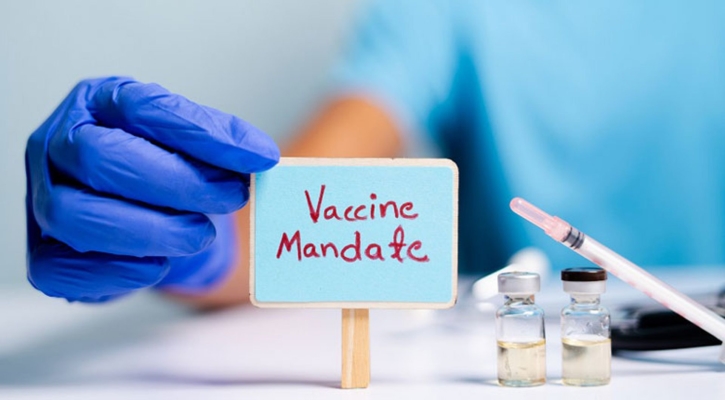On January 10, 2022, the Federal Occupational Safety and Health Administration’s (OSHA) Emergency Temporary Standard (ETS) on COVID-19 for employers with 100 or more employees takes effect. Although many had anticipated that the U.S. Supreme Court might rule on the legality of the OSHA ETS prior to today, the Court’s failure to do so means that covered employers should be prepared to comply.
Background
On Friday, January 7, 2022 the Supreme Court heard expedited oral arguments regarding judicial stays facing two federal vaccine mandates concerning COVID-19: OSHA’s ETS on COVID-19 for employers with 100 or more employees and the Healthcare Centers for Medicare & Medicaid Services (CMS) Interim Final Rule (the “CMS Rule”) covering certain health care providers.
While many had anticipated some sort of preliminary ruling or even a stay of one or both mandates by Monday, January 10th, we still have no ruling as of now.
OSHA ETS and Recent MIOSHA Action
As previously reported, the U.S. Court of Appeals for the Sixth Circuit recently lifted a judicial stay that had previously prevented the implementation of OSHA’s ETS for employers with 100 or more employees. OSHA responded to this ruling by issuing new compliance dates for the ETS: Covered employers were given until today, January 10, 2022, to comply with all provisions, except for the testing requirement for unvaccinated employees. The testing requirement was rescheduled to take effect on February 9, 2022.
Several petitioners filed immediate emergency appeals to the Supreme Court asking the Court to reinstitute the judicial stay, pending a full hearing and decision on the matter. The Supreme Court granted the request and held an emergency hearing this past Friday, January 7, 2022 regarding a judicial stay of the ETS.
However, as of January 10, the Supreme Court has not yet issued a ruling. That means the federal ETS is in effect and will proceed according to the new compliance dates announced by OSHA, pending the Supreme Court’s disposition of the case. You can find a full discussion of those requirements in our previous advisory.
Healthcare Employers: CMS Interim Final Rule
On November 30, 2021 a federal judge in Louisiana issued a preliminary injunction to block the start of the CMS Rule, which applies to certain healthcare entities. The injunction from the Louisiana federal district court applied nationwide except for the ten states that were already under a preliminary injunction order issued on November 29 in Missouri.
On December 15, 2021 a three-judge panel for the U.S. Court of Appeals for the Fifth Circuit ruled that the lower Louisiana federal court only had the authority to block the mandate in the 14 states that had actually filed suit. The following day, a federal court in Texas granted a preliminary injunction to enjoin CMS from enforcing is vaccine mandate in Texas. Thus, the CMS mandate has been blocked from enforcement in 25 states but remains in effect in the remaining 25 states. On December 28, 2021, the CMS updated its FAQs indicating it is moving forward with implementation of the CMS in the 25 states not subject to the Stay and modified its compliance timeline to January 27, 2022 for phase one and February 28, 2022 for phase two. See External FAQ IFC-6 Guidance Memo 12 28 21 226 (508 Compliant).
The U.S. government applied to the Supreme Court asking for a nationwide stay of the injunctions issued by the lower federal courts, pending full review by the lower Circuit courts. The Supreme Court granted the request and also held an emergency hearing on the CMS Rule this past Friday, January 7, 2022.
Again, however, we have heard nothing further from the Supreme Court. Thus, the CMS Rule remains blocked in 25 states as of today, but continues on in the other 25 states.
Recent Posts
The U.S. Department of Labor Announces Proposed Rule To Protect Indoor, Outdoor Workers From Extreme Heat
The U.S. Department of Labor has proposed a new rule aimed at protecting workers from extreme heat hazards. This initiative seeks to safeguard approximately 36 [...]
Supreme Court Overturns Chevron Deference: What It Means for Workplace Safety and Regulation
The landscape of federal regulation is set for a seismic shift following a recent Supreme Court decision. On June 28, in Loper Bright Enterprises, et [...]
Navigating the Compliance Maze: How NARFA Simplifies Employee Benefits for Automotive and Trade Industries
In today's complex regulatory environment, businesses in the automotive, roads, fuel, and related industries face unprecedented challenges in managing employee benefits. Recent studies show that [...]




